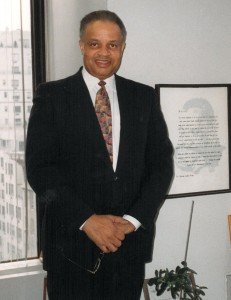 HUGH JEROME SCOTT (14, November, 1933) was born in Detroit, Michigan. He attended elementary and secondary schools in Detroit (Winger Elementary, Palmer Elementary, Columbian Elementary, Condon Junior High, and Northwestern High School). He is the recipient of the following degrees and certificates from Wayne State University in Detroit: Bachelor of Science in Education (1956), Master of Science in Education (1960), and Education Specialist Certificate (1964). Scott received his Doctorate in Education from Michigan State University in 1966.
HUGH JEROME SCOTT (14, November, 1933) was born in Detroit, Michigan. He attended elementary and secondary schools in Detroit (Winger Elementary, Palmer Elementary, Columbian Elementary, Condon Junior High, and Northwestern High School). He is the recipient of the following degrees and certificates from Wayne State University in Detroit: Bachelor of Science in Education (1956), Master of Science in Education (1960), and Education Specialist Certificate (1964). Scott received his Doctorate in Education from Michigan State University in 1966.
Scott was an elementary school teacher in Social Studies (1956, 1958-1965). He served honorably in the United States Army (July, 1956 – June, 1958). In 1966, he was appointed Assistant Principal in Detroit. Later in 1967, Scott served as the Assistant to the Deputy Superintendent for School Community Relations in the Detroit Public Schools. From 1968 to 1970, Scott served as Region Assistant Superintendent in the Detroit Public Schools. In 1970, was appointed as the first African American School Superintendent for the Public Schools of Washington, DC: (1970-1973). For two years, (1973-1975), Scott served as a Professor of Education in the School of Education for Howard University in Washington, DC. In 1975, he was appointed Dean of Programs in Education at Hunter College of the City of New York. He retired as Dean of the School of Education at Hunter College in 2000. From 2001 to 2004, Scott served as a Scholar in Residence at Pace University in New York.
David Julian Hodges in the Encyclopedia of African American Education, published by Howard University in 1996, wrote:
“When it was published in 1980, Scott’s landmark book The Black School Superintendent: Messiah or Scapegoat?, published by the Howard University Press was a pioneering study; its prophetic voice, vision, and insight positioned it also as the defining work today on the trials and triumphs of African American superintendents in the nations’ urban centers. Scott’s subsequent work, while broader in scope, continues to bear his unmistakable imprimatur of applied analysis and earnest counsel to practitioners, traits that have consistently marked his intellectual interests as reflected in the subject he chooses and the audiences for which his work is focused.”